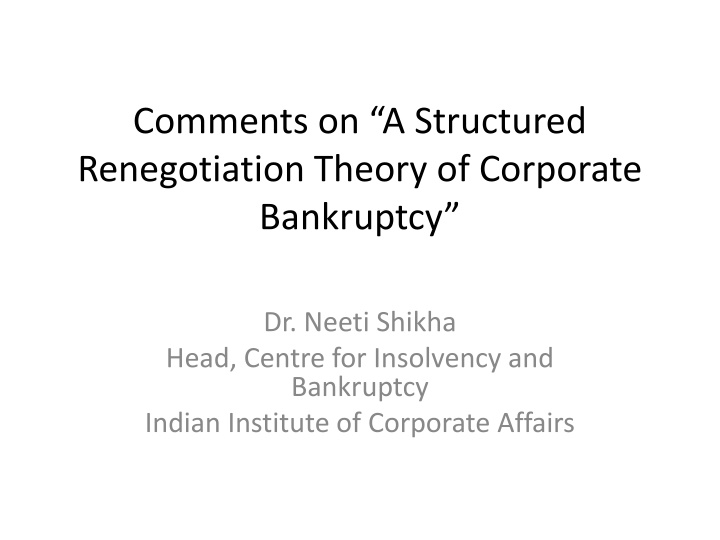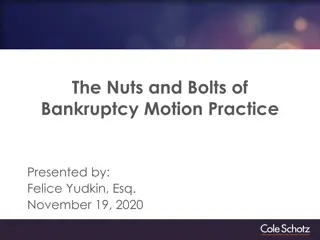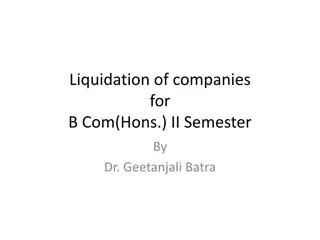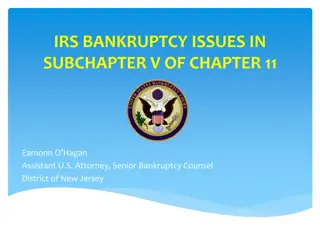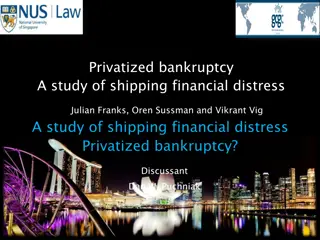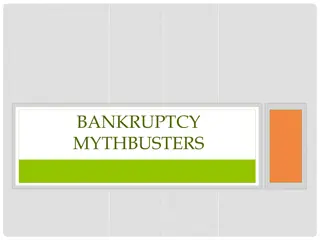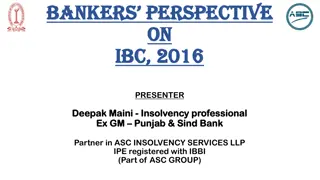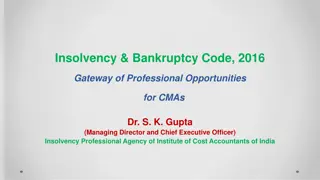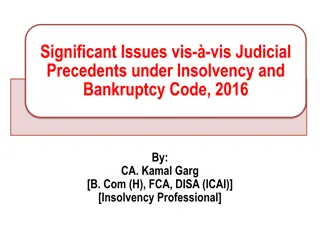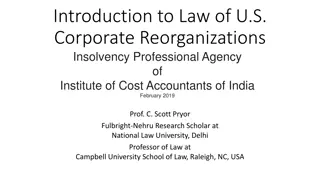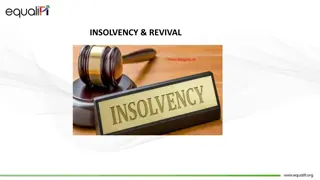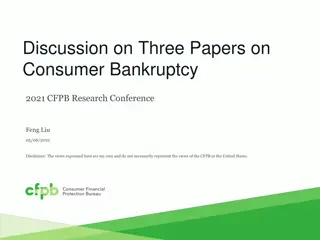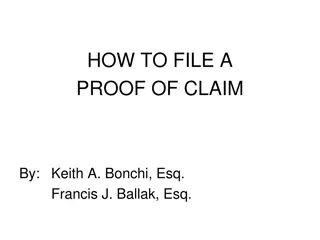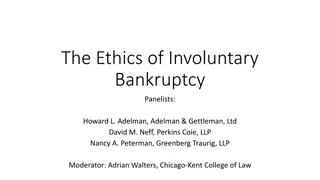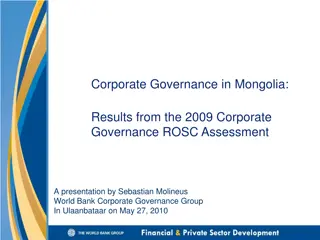Structured Renegotiation Theory of Corporate Bankruptcy
This paper by Dr. Neeti Shikha delves into the purpose of corporate bankruptcy laws in solving incomplete contracting problems, focusing on structured renegotiation theories and complexities beyond existing theories. It analyzes the effectiveness of creditor bargain theory, Butner Principle, and offers insights on dealing with incompleteness of contractual responses in bankruptcy cases.
Download Presentation

Please find below an Image/Link to download the presentation.
The content on the website is provided AS IS for your information and personal use only. It may not be sold, licensed, or shared on other websites without obtaining consent from the author.If you encounter any issues during the download, it is possible that the publisher has removed the file from their server.
You are allowed to download the files provided on this website for personal or commercial use, subject to the condition that they are used lawfully. All files are the property of their respective owners.
The content on the website is provided AS IS for your information and personal use only. It may not be sold, licensed, or shared on other websites without obtaining consent from the author.
E N D
Presentation Transcript
Comments on A Structured Renegotiation Theory of Corporate Bankruptcy Dr. Neeti Shikha Head, Centre for Insolvency and Bankruptcy Indian Institute of Corporate Affairs
Premise of the Paper Purpose of the Corporate Bankruptcy Laws is to solve incomplete contracting problem Bankruptcy Laws focus should be to solve the structured renegotiation directing at a specific problem arising out of incomplete contracting. Laws should not look at creating rules for solving any hypothetical ex ante bargain among the creditors How should law deal with ex ante uncertainty of financial distress?
Arguments of the Author Two theories that have been argued to be ineffective are: Creditor s Bargain theory states that bankruptcy s purpose should be efficient (para2 p11), introduces uncertainty and adds to agency cost (para2, p21) May have limited applicability in legal regime where debtor in possession model. For an efficient insolvency structure, agency cost may be difficult to reduce as insolvency triggers demand for enforcement of right in rem. Butner Principle- Purpose should be its own limit (para2 p11)
Arguments of the Author Bankruptcy Debates far more complex What are those complexities that these two theories fail to answer?
Arguments of the Author Dealing with incompleteness of contractual responses- provisions of automatic trigger of conversion of debt claim into equity claim to eliminate debt overhang. Doubt if creditors will be happy to sign up except in certain cases of infrastructure projects. Most creditors look for recovery under the camouflaged claim for resolution.
Arguments of the Author Incomplete contracts-(para 1 p28) Most of the contracts with secured creditors don t suffer from this anomaly Who then should complete the contract? Thesis for renegotiation is valid. ..Renegotiate under court supervision Renegotiate (mediate) privately within the legal framework
